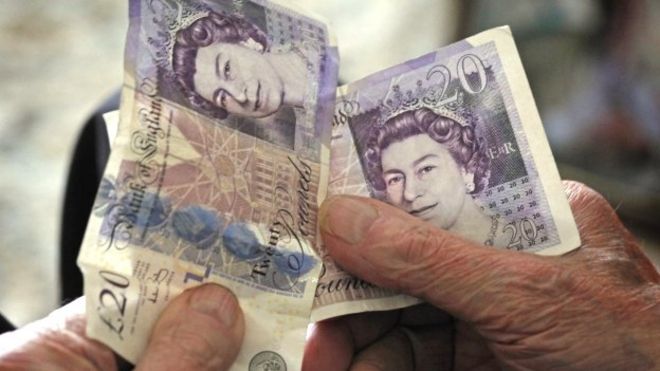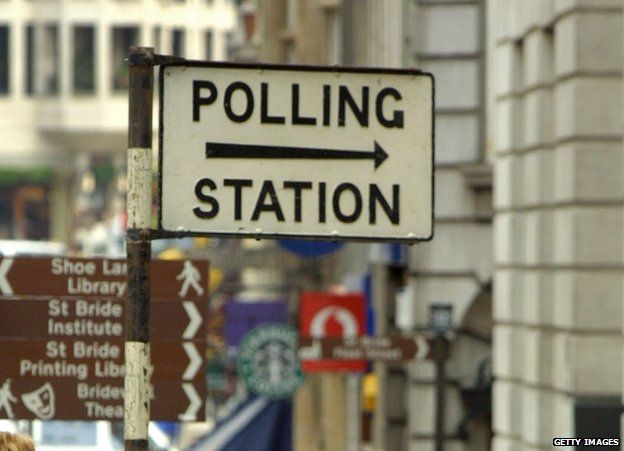- 30 April 2015
- Magazine

One of the most common accusations of this election campaign has been that a proposal is unfunded. But where did the word come from?
The political jibe unfunded gets some of its force from sounding like "unfounded" - and indeed they are related. Both are closely linked to words meaning bottom.
Unfunded can now mean not just "having no funds", but that an opponent's promise is made without showing credibly how it will be paid for.
"Fantasy tax avoidance crackdowns are a fig leaf for unfunded manifesto pledges" was the title of one newspaper article. The writer claimed a Labour proposal to raise money that way was just short of promising everyone a free unicorn.
And a Labour shadow minister called a Conservative pledge on rail fares "nothing more than a cheap pre-election stunt… unfunded, uncosted and unbelievable".
Fundus in Latin means the bottom of anything. It is descended from a word in Proto Indo-European (the ancestor of most European languages) which is something like bhudhno, from which our "bottom" also comes.
Fundament can also mean bottom - very rudely, in Chaucer's Pardoner's Tale. It comes from the Latin fundamentum, which is from fundus, as are our words foundation, well-founded, and unfounded.
The Romans used fundus to mean foundation or the main part of something, but especially to mean farm, or landed property - perhaps the basis of someone's wealth.
Its meaning had grown by the time of Cicero, who called Rome's publicly owned land fundum pulcherrimum - "that finest estate… the foundation of your revenues, the granary from which your legions are fed".
In French, fundus became fond (modern fonds) meaning a store or supply of something, including money. English adopted this use from French in the 17th Century.

Poll is a word for head, in English since the 13th Century. From it we get the word tadpole (toad-poll) because tadpoles when you look at them seem to be nearly all head.
Also we get "poll tax" - a tax reckoned per head. Captain John Smith of Pocahontas fame wrote in 1624 that to provide for good officials in the American colonies "some small tax… as a Penny upon every Poll, called a head-penny" might have to be imposed.
But poll quite early became used to mean counting people - taking a head-count. In the 14th Century Vision of Piers Plowman the poet notes ironically that if you are rich friars will pray for you "pol bi pol" - that is, all of them together.
In 1659 the political writer James Harrington used it to mean a census.
An early dictionary - 100 years earlier than Dr Johnson's - was the New World of Words, originally compiled in 1658 by Edward Philips, John Milton's nephew and pupil.
In the 1706 edition one meaning of poll is given as "to set down the names and reckon up the number of persons concerned in an election". In the 1696 edition the meaning does not appear, giving a rough of indication of when it became common.
Opinor meaning "I believe" - "It is my opinion that…" and the noun opinio formed from it, appear in the works of many Latin writers - in particular, they were great favourites of Cicero's.
A surviving fragment from the great orator's speeches says that among barbarous people "opinio plus valet saepe quam res ipsa" - opinion is often more important than actual fact.
This is not contradicted by Milton in his mighty defence of free speech, Areopagitica. "Opinion in good men is but knowledge in the making.
Putting the two words together gives one of the commonest phrases heard at election time.
By 1938 it was well known, when an article called "These Public Opinion Polls, How they Work" appeared in Harper's magazine.
It was in the 1930s that such polls, based on quick scientific sampling, became institutions in the US, pioneered by the market researcher Elmo Roper and the academic psychologist and statistician George Gallup. In Britain Gallup's offshoot scored a hit by predicting Attlee's shock landslide victory in 1945.


No comments:
Post a Comment